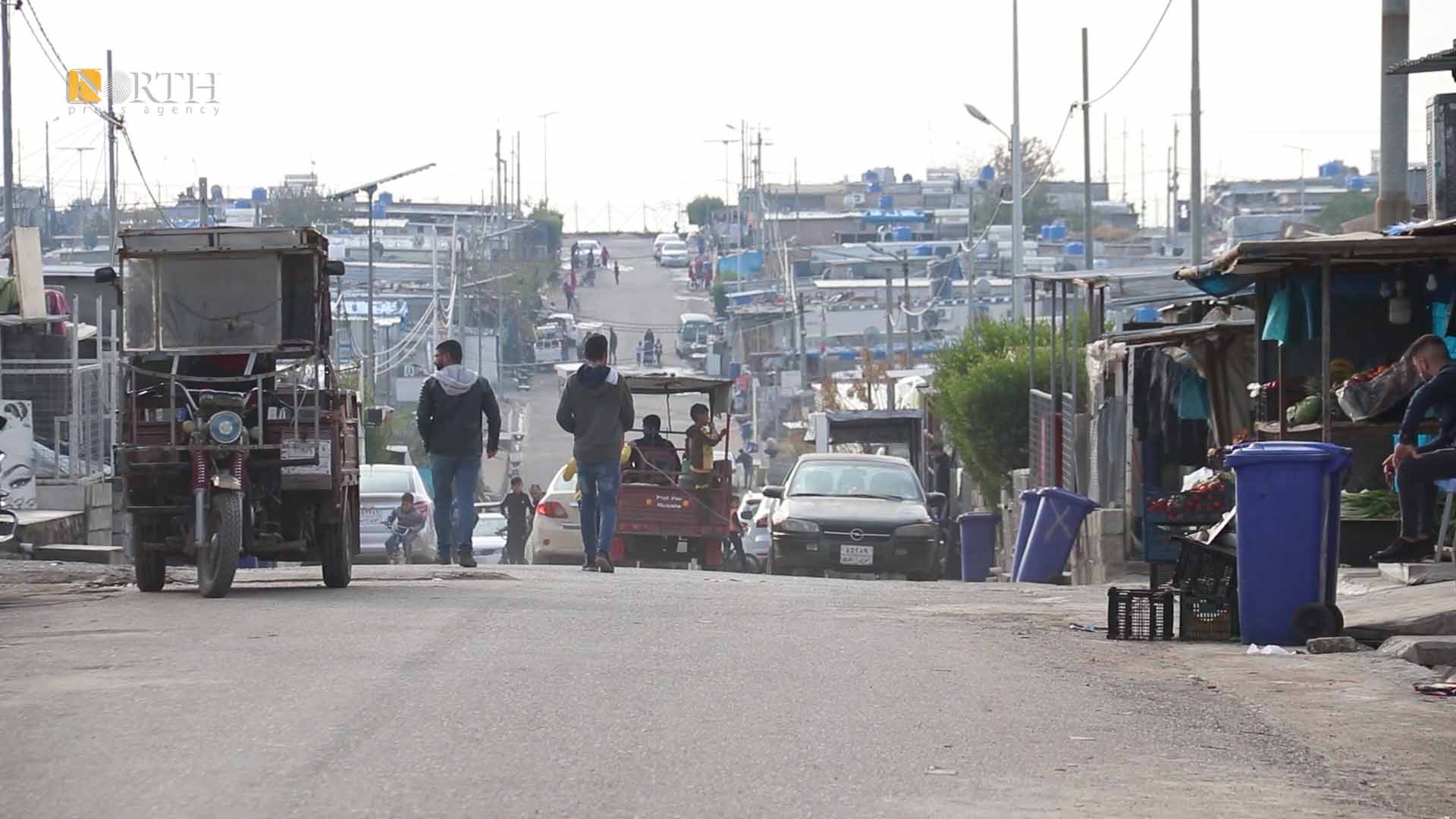Syrian refugees in KRG between integration and resettlement
ERBIL, KRG, Iraq (North Press) – Following a decade of being refugees in camps, fate of thousands of Syrian families in the Kurdistan Region of Iraq (KRG) is still unknown and the options left to them are either integration in the country, calling for resettlement in a third country, or return to home.
Alya Mahmoud Rahmano, a refugee from an area affiliated with Aleppo, is one of thousands of refugees, who search for a better future for their children.
Rahmano, who fled to Erbil in the KRG in 2013, is facing many difficulties as a result of the impacts of the coronavirus pandemic.
Rahmano works in a small grocery in her house in Dar Shukran Camp, north of Erbil, in order to support her family.
However, the income of the grocery does not cover the costs of livelihood, health, and education that is threatened. She calls on the UN High Commissioner for Refugees (UNHCR) to pay salaries to teachers in order for her daughter to complete their education.
“The future of our children has collapsed in the camp we call on the UNHCR for help in order to go abroad,” she said.
Farid Ismat Darwish, who is an engineer from Qamishli residing in the camp, agrees with Rahmano saying, “our children are not registered in the civil registry and we do not obtain health insurance.”
There about 290,000 Syrian refugees in Iraq most of them in the KRG, according to official statistics by UNHCR.
And the number of those officially registered for the UNHCR is about 235,000 refugees.
“The UNHCR support permanent solutions and the most important solution is to return home if the refugee can,” Firas al-Khatib, the UNHCR official spokesman in Iraq, said.
“If he cannot, then the other solution is the local integration.”
Al-Khatib praised the efforts of Erbil, which was ranked globally as one of the friendly cities for refugees so he encouraged the step of integrating refugees in the KRG.
However, according to refugees, the rights that UNHCR is talking about are not obtained, so they organized more than one protest in front of the office of the United Nations in Erbil, demanding resettlement in a third country or the provision of rights in the place of asylum, especially “education, health and citizenship.”
“Iraq did not sign the agreement of 1951 on refugees so that refugees in Iraq do not obtain the least rights of them,” Zakariya Ali, a Syrian refugee in Iraq, said condemning inaction of the UNHCR over resettling Syrians in Iraq.
Protesters have launched an online camping to sign a petition demanding resettlement with thousands of refugees signing it.
The campaign raised awareness of asylum seekers making the resettlement a demand for most Syrian refugees, according to Ali.
Ali demanded that the UNHCR works as other neighboring countries that support the resettlement plan.
“Due to the coronavirus pandemic along with the deteriorating economy, the rate of refugees received in Europe has decreased compared to previous years.”
“In Turkey, every year between 10,000 and 20,000 Syrian refugees obtain resettlement in European countries,” Ali added.
Ali called on the UNHCR for resettlement in a third country.

